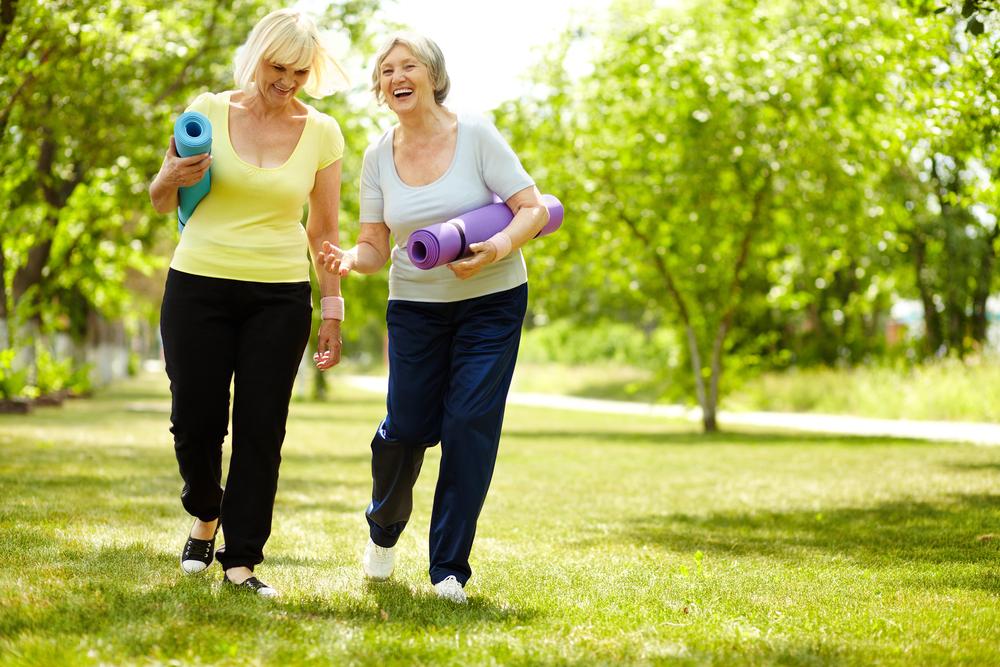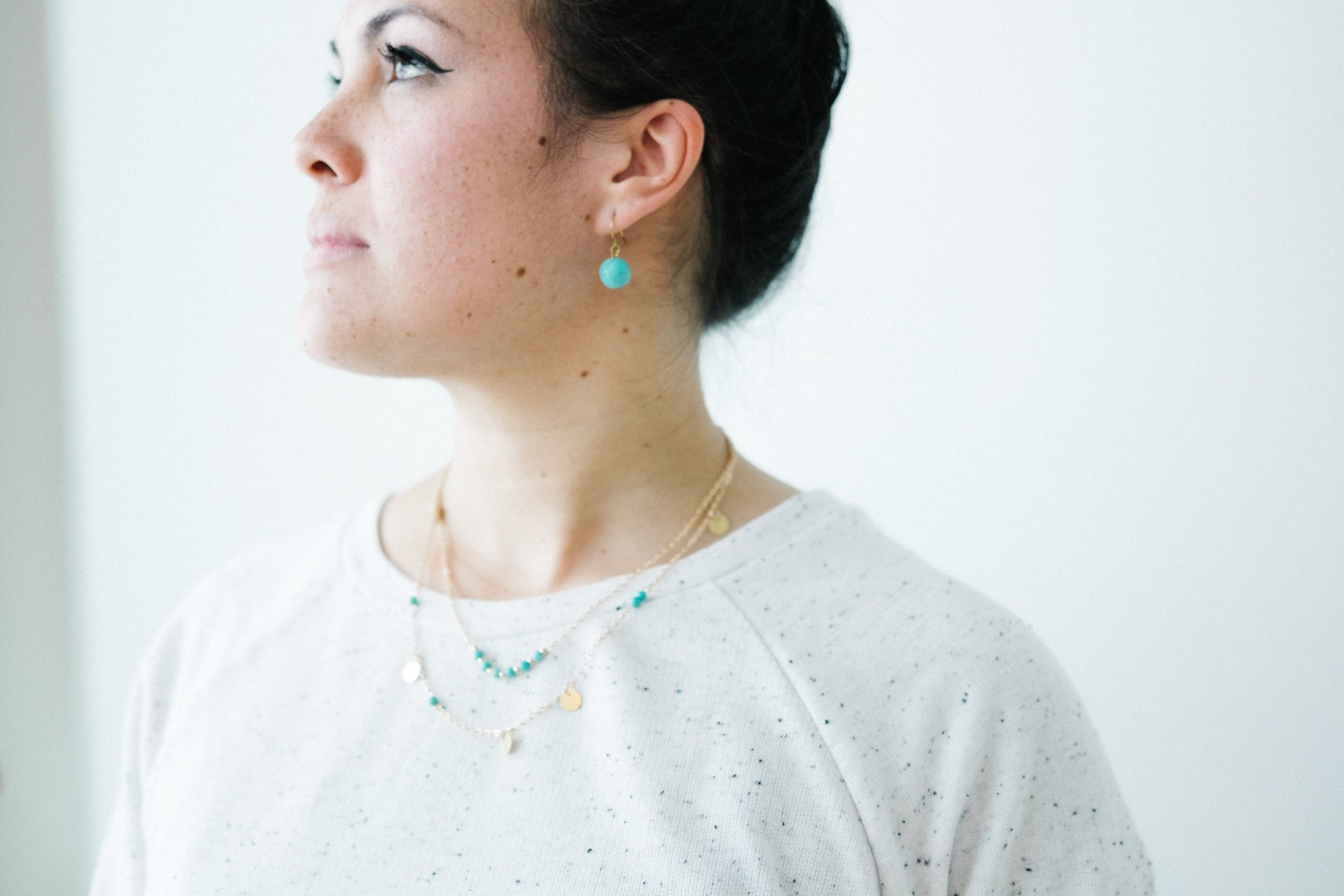Life After the Menopause

Life After the Menopause
From the moment menopause begins, most women wish for it to end- who wouldn’t be dying to get rid of years of uncomfortable symptoms? But, do you know what life after the menopause actually looks like?
Once menopause halts, your hormone levels will stay consistently low. Your menstrual cycles will end completely, and you will no longer be fertile, meaning you can no longer become pregnant.
Post-menopause just sounds like the end of menstrual and menopausal symptoms, but it isn’t exactly that simple. In this article, I’ll be giving you an exhaustive explanation of what symptoms accompany post-menopause, how to stay healthy following menopause, and what to look forward to during this exciting period of your life.
Listed below are the contents of this article, should you wish to skim straight to the area of interest.
- What Are the Signs
- Life After Menopause – The Good & The Bad
- Staying Healthy
- Heart Disease – Risk Prevention
- Maintaining Vaginal Health
- Anxiety & Depression – Prevention
- Feeling Great After Menopause
- Sex & Relationships
- Frequently Asked Questions
- Will I Stop Having Sex
- My Own Experience
Medical Disclaimer. ”Please do not rely on our website for specific medical in formation. If you have any specific questions about any medical matter, you should consult your doctor or other professional healthcare provider”
1/What are the Signs of Starting Postmenopause?
By definition, post-menopause is signaled by not having a period for 12 months or longer, so that’s your first sign.
You will also notice that the pesky menopause symptoms that you’ve been dealing with will start to slowly decrease in frequency. Therefore, you’ll notice less hot flushes, a decrease in irregular menstruation and less chills, in addition there is usually less discomfort during intimacy, big downside, less lack of control over bladder movements.
Your mood will stabilize, your memory will improve, you’ll have better control over your weight, you’ll regain some of the energy you lost during menopause, and your sleep schedule will become more regular again.
2/Life after the menopause sounds pretty nice, huh?

And it can be. While these are the signs to look out for that signal the beginning of post-menopause, there are other important things to know about what post-menopause and postmenopausal health entail.
Postmenopausal Health: What to Expect
Post-menopause comes with an increased risk for certain health conditions (this does not mean you will absolutely develop these, though.) These conditions include:
- Cardiovascular Disease
- Menopause does not cause cardiovascular disease, per se. However, hormone changes can affect your blood pressure and increase cholesterol (the bad kind.) Women ten years into postmenopause have an increased risk of heart attacks.
- Osteoporosis
- Osteoporosis is a condition in which your bone density gets thinner, making them more susceptible to breakage. The loss of estrogen that comes with the beginning of postmenopause can cause alterations in your bone density. In fact, your bones may become 25% thinner than they were before starting postmenopause.
- Changes in Vaginal Health
- Hormone changes can also increase the risk of poor vaginal health, including susceptibility to conditions like yeast infections or vaginal dryness.
- Mental Health Conditions like Depression and Anxiety
- Your hormones are responsible for emotional regulation and with the changes in estrogen levels, postmenopausal women can become more susceptible to developing depression and anxiety. The same phenomenon occurs with postpartum depression, caused by a drop in estrogen levels.

While knowing that you have an increased risk of these conditions is something to remain conscious about, there are many ways women can manage this risk by adopting preventative healthy habits.
3/Staying Healthy After Menopause
While life after the menopause comes with certain health risks, one can take steps to reduce their risk of developing the aforementioned conditions.
Postmenopausal Osteoporosis Prevention
Contrary to popular belief, consuming dairy does not prevent the development of osteoporosis. One Swedish study actually found a link between consuming milk and increased risk of osteoporosis, bone fractures, and even death. Thanks to these discoveries, we can now take the proper steps needed to reduce our risk of this condition.
Postmenopausal women should increase their frequency of aerobic exercise and strength training exercise in particular. Most people think that strength training only works out your muscles, but did you know that strength training exercise strengthens your bones, too? This is the first and most important step in reducing your risk of osteoporosis following menopause.
Smoking and alcohol consumption, in excess, can have an effect on your bone density. Watching these habits or stopping them altogether will reduce your risk of osteoporosis.
You can also invest in vitamin D supplements and calcium supplements. These two supplements are the most important in cultivating healthy bone density. While supplements do help, it’s best to find these nutrients from real food for the best effect.
You can find vitamin D in foods like fortified cereals and fatty fish, but the best source is sunlight. Make sure you’re spending enough time doing active things outdoors but don’t forget the sunscreen!
While high levels of calcium are indeed found in dairy products, in order to reduce the negative effects of dairy consumption, one can purchase calcium-fortified plant milk to get their daily levels. Some green vegetables contain calcium, too.
4/Postmenopausal Cardiovascular Disease Risk Prevention
Preventing cardiovascular disease means real lifestyle changes, but this can also be an exciting opportunity for postmenopausal women to cultivate a healthy living routine!
One of the most important things to do to prevent cardiovascular disease is aerobic exercise. Cardio exercises like running, biking, swimming, and elliptical exercise are great for promoting cardiovascular health.
Maintaining a balanced diet is vital for cardiovascular health, too. Eating a diet that emphasizes variety ensures you will be taking in diverse nutrients from various sources. Eat plenty of fruits and vegetables (use this as an opportunity to discover veggies you’ve never tried before!), whole grains, nuts, and switch to healthy vegetable cooking oils, like avocado/olive/coconut.
Maintaining a healthy weight is extremely important as well, so try not to consume more calories than you burn in a day. You can find your perfect daily calorie amount for your age and height/weight on various calculators online.
I found a really great “work out” Video on You Tube which is aimed at the over 50’s Just 20 minutes will have you feeling fabulous.
Her name is Jenny McLendon, it is very watachable and very easy to follow. I follow for just three days a week and a good brisk walk on the others.
Check out the vid..
5/Maintaining Postmenopausal Vaginal Health
Vaginal dryness following menopause is uncomfortable in both daily lives and during intimacy. Thankfully, there is a myriad of ways a postmenopausal woman can prevent and treat this.
Regular sexual activity or vaginal stimulation can help maintain healthy vaginal tissues (with or without a partner.) If the discomfort during intimacy is too much to handle, you can purchase vaginal moisturizers or lubricants to assist.
Because these symptoms are often caused by the drop in estrogen levels that follows postmenopause, you can also buy a vaginal estrogen cream, insert, or ring to invigorate vaginal tissues.
There is also an increased risk of yeast infections or urinary tract infections in postmenopausal women. Urinary tract infections, if left untreated, can result in kidney infections which are much more difficult to treat. Making sure to urinate after intimacy is the number one way to prevent these conditions.
The next step to take is to make sure you’re cleaning your vagina regularly (even after sex) with a vagina-safe soap or cleanser. Making sure it’s a soap made specifically for vaginal application is vital, given that the extra fragrances and chemicals in regular body soap can strip your vagina of necessary oils and damage vaginal tissue, exacerbating your symptoms.
6/Postmenopausal Depression/Anxiety Prevention
There are many ways one can improve the quality of their mental health following postmenopause.
Maintaining a regular sleep schedule is the number one way to maintain good mental health. Thankfully, postmenopause often involves the loss of menopausal sleep issues, but you should try and organize a specific sleep schedule that you know you can stick to. The average adult requires seven to nine hours at minimum to function properly and maintain their health, so make sure you find a sleep schedule that allows for this amount of time.
Exercise is the second most important (are you seeing a trend here?) Many mental health professionals say that an hour of exercise a day has an equivalent effect to taking depression or anxiety medications. A combination of aerobic and strength training exercises will have a noticeable effect on your mood. Eating a healthy diet full of diverse nutrients is also extremely beneficial.
If your depression and anxiety are getting to the point where it’s too much to bear, or you have thoughts of self-harm or suicide, it’s important to talk to your doctor to discuss medication or hormone therapy options. You can also call the national suicide hotline at 800-273-8255 for acute assistance with depression symptoms.
7/Why do Some Women Feel Great after Menopause?
By and large, life after the menopause can be really fulfilling for many women.
This is mostly due to the reduction of problematic menopause symptoms, like sleep issues, mood swings, hot flashes/chills, weight fluctuation, and more.
In fact, women on an average report that the happiest years of their life are during their older age, and often occur from ages 50 to 70. This range also coincides with the decrease in menopausal symptoms and can signal the start of retirement- so there’s really a lot to look forward to!
Women’s general mood is believed to improve as women make the transition from middle-age to later ages. During this age range, women have more control over their lives than ever before, and also are often still physically able to enjoy activities like traveling, hiking, and engaging with physically demanding hobbies.
Women often find themselves spending more time working on themselves and their physical and mental health during this period. As mentioned before, postmenopause coincides with an exciting opportunity for women to develop a more healthy lifestyle and an increase in free time to spend doing the things they love.
In order to get here, though, you have to capitalize on the incredible opportunity you’ve been given with the end of menopausal symptoms to focus on yourself, your hobbies, and your health.
8/Sex and Relationships After Menopause
The age at which most women experience postmenopause coincides with a time that involves more individual time and freedom; women no longer have to worry about the possibility of an accidental pregnancy, and if you have children, they’ve often left the home by this point- so you have more time than ever to focus entirely on your relationship with your partner.
While this sounds like a really great deal, there are also still physical symptoms of postmenopause that can affect your sex life.
The drop in estrogen levels that occurs during and after menopause may have an effect on your ability to become aroused. You may experience disinterest in sex or difficulty reaching orgasm. Your vaginal canal will also become less flexible due to this, and the vaginal dryness mentioned before can make intimacy more uncomfortable.
It’s important to remember that having less sex during this period is completely normal. That doesn’t mean your sex life has to disappear (it shouldn’t), but if your partner is of a similar age, he’s likely experiencing difficulty in arousal as well. This is a natural part of the human process, so don’t get discouraged. Your sex life may change, but it’s not a bad thing.
Many women find that intercourse itself is too uncomfortable, but there are many other types of sex to experiment with during this period. Clitoral stimulation might feel better than intercourse, so you and your partner can try having more oral sex. It’s important to have open communication with your partner so you can find ways to remain intimate that work best for you.
While you may experience some new sexual complications, the emotional aspect of your relationship may very well get better. You’ll be free of the mood swings and sleep deprivation that comes with menopause, so you’ll have a more stable mood and may be more pleasant to be around (it’s not your fault if you weren’t!)
You also may also have reached retirement age, or your children are no longer living with you, so you can focus entirely and completely on your relationship.
What do Contemporary Women Look Forward to Following Menopause?
We already know women are often happiest in their lives following the end of menopause, so there’s got to be some really good stuff to look forward to here. The modern woman often looks forward to this period of her life- let’s look at why postmenopause is oftentimes something to get excited about.
- Ah, what every woman really dreams of- the cessation of menstrual cycles. This cessation comes with the elimination of monthly symptoms women often experience, such as cramps, headaches, nausea, and more. Even just the cessation of vaginal bleeding symptoms provides relief for women.
- The cessation of menopausal symptoms also allows women to focus on things other than their mood swings, fluctuating weight, sleep issues, and hot flashes/chills. The relief from these physical symptoms is enough to make anyone jump for joy.
- Postmenopausal women may have more time to focus on themselves, now that they’re reaching retirement age and menopausal symptoms have disappeared. Immediately following postmenopause, you’re often still at an age where you’re extremely physically capable, as long as you’re in good health. Many women look forward to regaining their energy and trying new things.
- Memory loss is often a symptom of menopause, and while elderly people can experience memory issues, the period immediately following menopause can come with an increase in memory capacity. You’ll be sharper and more energized than when you were going through menopause.
- Sex can be better! As long as you have proper lubricant and open communication with your partner, you can have a sex life that is fulfilling and exciting. In fact, more than 60% of women in the UK report that they still have a fulfilling sex life after age 65.
9/Frequently Asked Questions about Postmenopause
Should I Try Hormone Therapy?
If you’re experiencing some of the problematic symptoms that accompany a drop in estrogen, like decreased arousal, loss of bone density, or postmenopausal depression/anxiety, talking to your doctor about hormone therapy is an option.
Hormone therapy involves replacing the lost estrogen in your system with more female hormones. Hormone therapy has been known to reduce symptoms of low estrogen and can be very therapeutic for certain people.
However, not everyone is a candidate for hormone therapy, so don’t have lofty expectations. Your doctor may decide that hormone therapy is not the right option for you, and it comes with an increased risk of certain conditions like stroke, breast cancer, heart disease, and blood clots. These are all very serious conditions that are not to be taken lightly.
The bottom line is, talk to your doctor. Hormone therapy isn’t all good or bad, so do your research and decide what works best for you.
10/Will I Stop Having Sex?
That’s up to you, but by and large, the answer is no. You can absolutely stop if you are no longer interested, but many women still feel sexual desire postmenopause- it just might be less frequent.
Things like estrogen cream and lubricant can help with arousal and vaginal dryness, making the experience more comfortable. It’s also imperative to have proper communication with your partner about what works and what no longer works for you to help you find a new way to go about your sex life.
It’s important to remember that intercourse is not the only type of sex out there. Just because intercourse may have gotten uncomfortable doesn’t mean you have to halt intimate activity. Experiment with different types of sex and positions to find a healthy balance that is comfortable for you and your partner.
11/ My Own Experience
I was only 41 when I started to notice and suffer dreadful night sweats, mood swings bordering on the maniacal, hot flushes, or as I called them a “tropical moments”
I had not had any periods for some time due to the fact I was wearing a coil, so didn’t have any of the usual warning signs.
I never dreamt it was early menopause especially as both my Mother and Grandmother were in their early 60’s and it is usual for females to follow their Mother.
At the time I was going through a very painful and heartbreaking divorce and thought the depression and mood swings were down to that. Never the less I trotted off to my GP who agreed with my diagnosis and I was prescribed Anti Depressants. This certainly seemed to take the edge off my depression and anger but not the night sweats “Tropical Moments” or the need to have the fan on all night despite it being the middle of winter.
I struggled on like that for three further years and finally I visited another Doctor, this was largely a vanity issue as I had unexpectedly started to gain weight (a lot of weight) and the night sweats were horrendous. It was at this point I was given a test and was told I was well into my menopause (at least three to four years)
I am now well past that period and at 62 have long since stopped wearing the Hormone patches. (still have the fan on an night) The weight issues have been tough and this will be an article for another day. I am currently on a weight loss journey and I hope to share with you how I (FINALLY) achieved some sort of control. Its not easy but its not impossible.
Meantime I would like to thank you for reading thus far. This is one of the longest posts I have ever written I hope you have enjoyed. I would welcome your comments and thoughts as would my other readers. Please comment below
Cordelia
Founder of Hey Spring Chicken
Images
Animated Image of x 2 Women – Jay Mantri – StockSnap
Woman Alone in Cafe – Candace McDonal – StockSnap
Body & Image – Kristen Hardwick- StockSnap
Romantic Couple – Josh Wilink StockSnap
Happy woman – Matheus Ferrero – StockSnap
Woman on her own – Christian Mackie – StockSnap
References
Silver, Natalie. “Postmenopausal Health: What to Expect.” Healthline, Healthline Media, 29 May 2020, www.healthline.com/health/menopause/postmenopausal-health#cardiovascular-disease.
Johnson, Traci C. “Postmenopausal Health: Changes, Symptoms, Causes, and More.” WebMD, WebMD, 30 Aug. 2020, www.webmd.com/menopause/guide/health-after-menopause.
“Ten Post-Menopause Benefits to Look Forward To.” Saga, www.saga.co.uk/magazine/health-wellbeing/wellbeing/10-post-menopause-positives.


Thank you for this comprehensive article on life after menopause! So many women that I know are horrified when they begin to see symptoms of menopause like the ones you mention here. They see it as “getting old” I have been postmenopausal for 10+ years and life only gets better. Your positive notes on life after menopause are spot-on. The one I agree with most is having the time to work on me, my own life, as my children are older and have left the nest. I also like that you touched on the sexual part of our lives and that the end of “conventional” sex is not the end of a loving and caring relationship. Please keep up the great work helping older women have the information they need to live life to the fullest.
Thank you so much for taking the time to read and comment on the post.
Menopause is something which scares the life out of women who have not yet reached post menopause, especially when or if they read about what can happen to them after menopause, but as you so eloquently pointed out, and what I strive to reinforce, life does often become easier, less drama and the pace slower and less stress as you hit your 50’s and more especially your 60’s
I am glad you found it useful, I hope to touch on related issues that accompany menopause. So do come back and once again thank you for the comment.